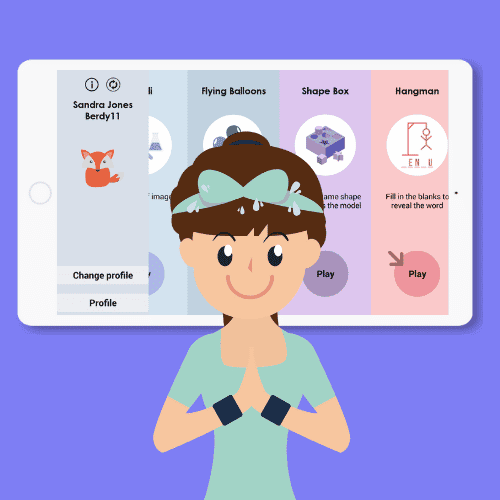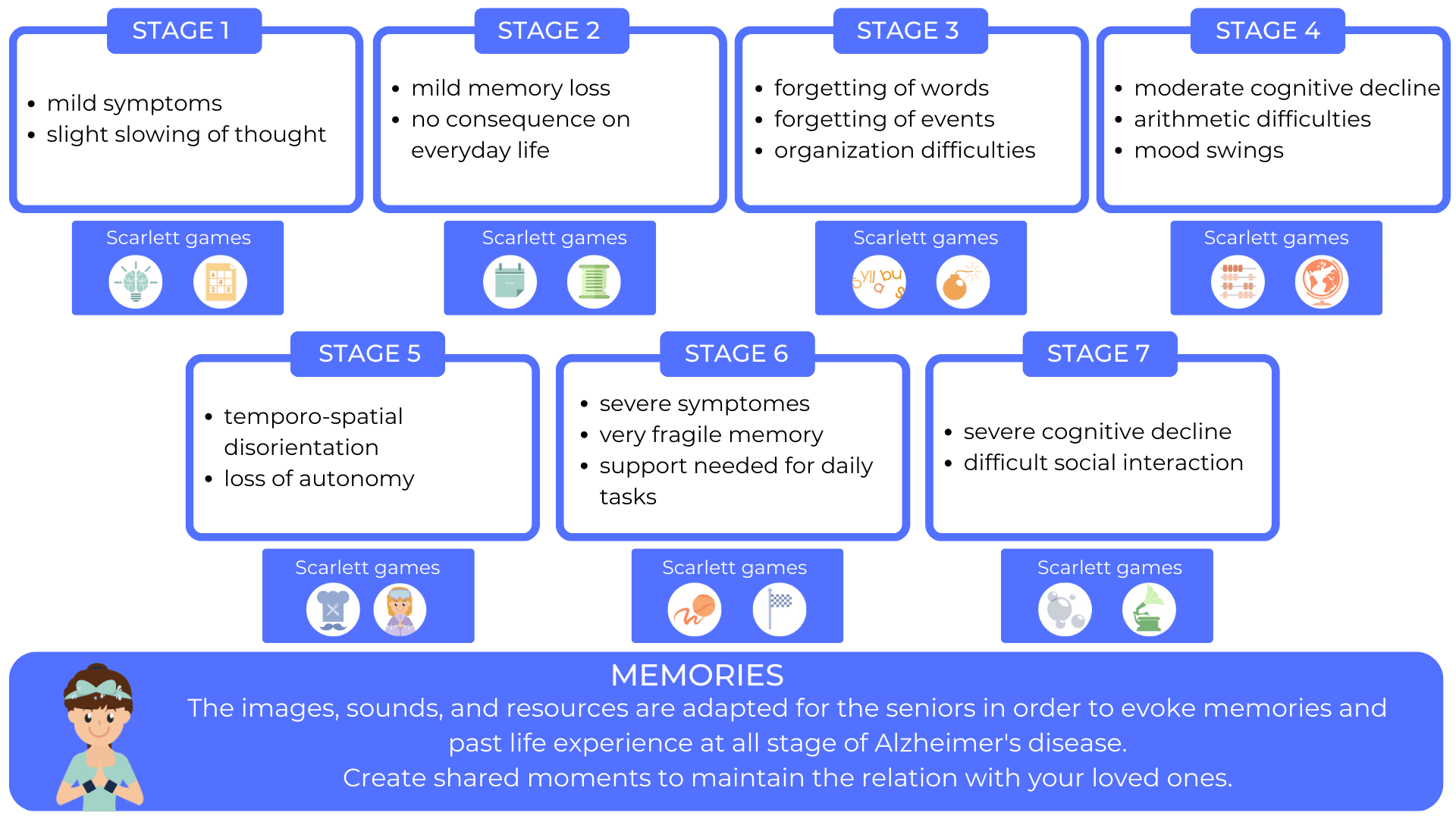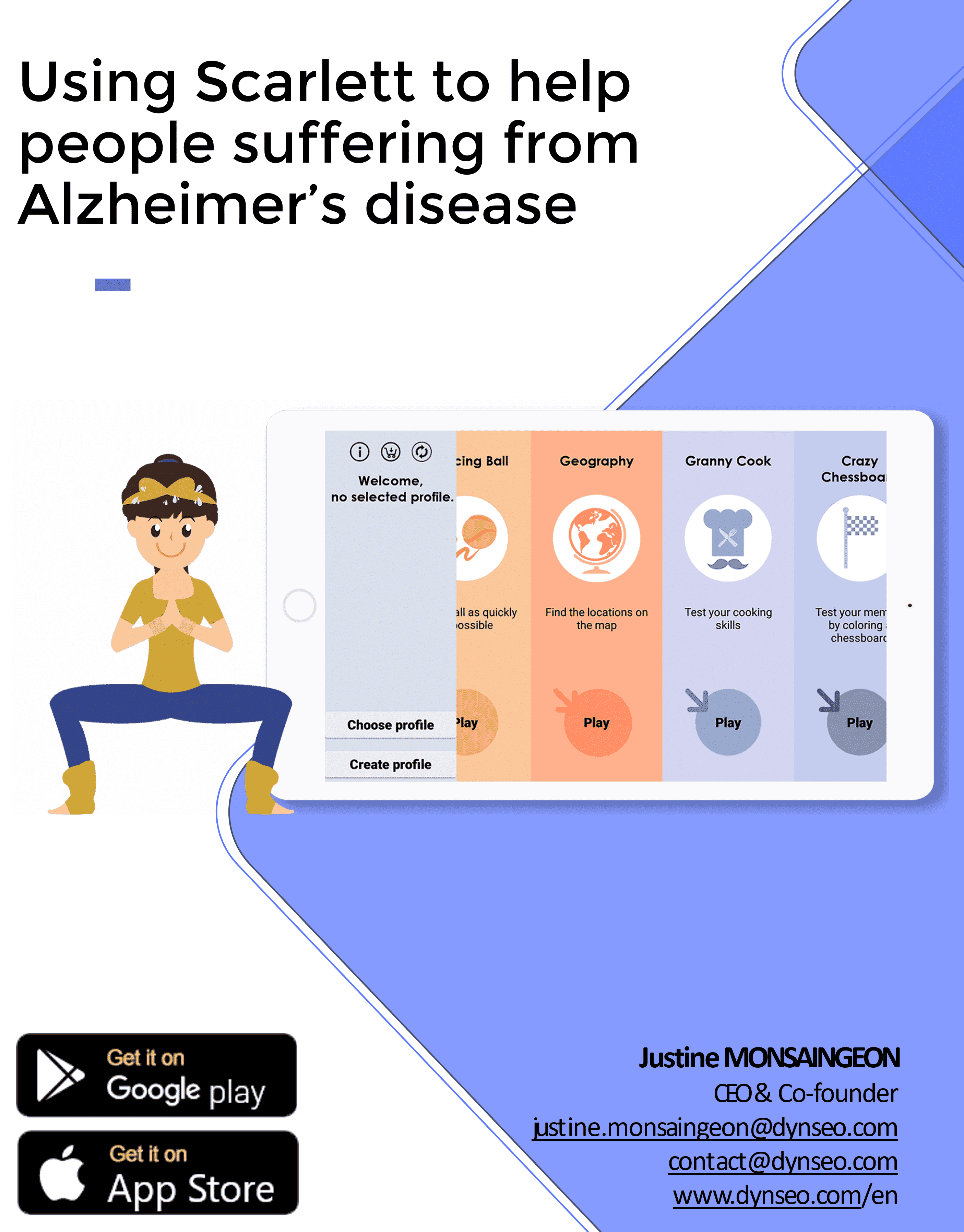Contrary to traditional perceptions, gaming isn’t solely the domain of the young; it holds immense therapeutic value for seniors as well. Through interactive experiences tailored to their cognitive abilities, games offer avenues for engagement, social interaction, and cognitive stimulation. Moreover, they provide a safe space for seniors to explore, reminisce, and create new memories, fostering a sense of joy and accomplishment. Harnessing the power of gaming could revolutionize Alzheimer’s care, offering a holistic approach that addresses the symptoms and the emotional well-being of those affected.
Understanding Alzheimer’s Disease
Alzheimer’s disease manifests through a gradual decline in cognitive abilities, memory loss, and difficulties in language, reasoning, and problem-solving. As it progresses, individuals may experience disorientation, mood swings, and changes in behavior. These symptoms significantly impact seniors’ cognitive and emotional well-being, leading to frustration, anxiety, and a sense of loss. Tasks once routine become challenging, eroding independence and self-confidence.
Moreover, the inability to recognize loved ones or recall cherished memories further compounds emotional distress. Alzheimer’s not only diminishes cognitive function but also undermines the very essence of a person’s identity, profoundly affecting their quality of life and emotional resilience. Understanding these complexities is crucial in developing effective strategies to support individuals living with Alzheimer’s and their caregivers.
Benefits of Gaming for Alzheimer’s Patients
Cognitive stimulation through gaming activities
Gaming provides a dynamic platform for cognitive stimulation tailored to the needs of Alzheimer’s patients. Engaging in activities such as puzzles, memory games, and problem-solving challenges stimulates various cognitive functions, including memory recall, attention, and executive function.
These activities encourage active participation and mental agility, helping to maintain and even improve cognitive abilities over time. By continually challenging the brain in a fun and interactive manner, gaming fosters neuroplasticity, the brain’s ability to form new connections and adapt, which is particularly beneficial in slowing cognitive decline associated with Alzheimer’s disease.
Emotional engagement and social interaction
One of the most significant benefits of gaming for Alzheimer’s patients is its capacity to foster emotional engagement and social interaction. Many games are designed to evoke positive emotions such as joy, excitement, and accomplishment, providing a welcome respite from the frustrations and challenges of the disease. Additionally, multiplayer or cooperative games offer opportunities for social interaction, whether playing with family members, caregivers, or fellow residents in a care facility. These interactions promote feelings of connection, belonging, and shared experiences, which are essential for emotional well-being and can help alleviate feelings of loneliness and isolation often experienced by Alzheimer’s patients.
Distraction from negative thoughts and anxiety
Gaming serves as a powerful distraction from negative thoughts and anxiety commonly experienced by Alzheimer’s patients. Immersive gameplay captivates attention and redirects focus away from distressing thoughts or situations, offering a temporary escape and relief from psychological distress. The interactive nature of gaming requires active engagement, preventing rumination and promoting a sense of agency and control. Furthermore, the enjoyment derived from gaming releases feel-good neurotransmitters such as dopamine, which can uplift mood and reduce feelings of anxiety and agitation. By providing a pleasurable and absorbing activity, gaming effectively enhances the emotional well-being of Alzheimer’s patients, improving their overall quality of life.
Types of Games Suitable for Alzheimer’s Patients
For Alzheimer’s patients, a variety of games tailored to their cognitive and physical abilities can provide meaningful engagement and stimulation. Memory games and puzzles, such as matching games or jigsaw puzzles, are particularly beneficial for exercising cognitive functions like memory recall and problem-solving skills. Interactive and customizable digital games offer a wide range of options, from simple touch-screen games to more complex simulations, allowing for personalized experiences based on individual preferences and abilities.
These digital games can adapt to difficulty levels and provide instant feedback, promoting a sense of accomplishment and mastery. Additionally, physical games promoting movement and coordination, such as tossing a ball or playing simple sports games, not only stimulate motor skills but also encourage social interaction and physical activity, contributing to overall well-being. Incorporating these diverse types of games into Alzheimer’s care plans can enhance cognitive function, emotional engagement, and physical health.
Considerations for Designing Games for Seniors with Alzheimer’s
Simplified user interfaces and intuitive controls
Designing games for seniors with Alzheimer’s necessitates prioritizing simplicity in user interfaces and controls. Clear and straightforward interfaces with intuitive navigation can significantly enhance the gaming experience for individuals with cognitive impairments. Large buttons, minimalistic layouts, and easy-to-understand instructions help reduce confusion and frustration, enabling players to focus on enjoying the game rather than struggling with complex controls. Additionally, incorporating features like voice commands or gesture-based controls can further improve accessibility for those with motor skill challenges, ensuring that the gameplay remains engaging and accessible to a broad range of players.
Incorporation of familiar themes and settings
Familiarity can greatly enhance engagement and enjoyment for seniors with Alzheimer’s when playing games. Incorporating familiar themes, settings, and characters from their past experiences can evoke positive emotions and facilitate memory recall. Whether it’s recreating a beloved hobby, a familiar location, or using characters from well-known stories, these familiar elements can provide a sense of comfort and connection to the game world. By tapping into these familiar contexts, game designers can create a more immersive and meaningful experience for Alzheimer’s patients, fostering a sense of nostalgia and continuity that enhances overall enjoyment and cognitive stimulation.
Adaptability to varying cognitive abilities
Games designed for seniors with Alzheimer’s must be adaptable to accommodate the wide range of cognitive abilities present among players. This includes offering adjustable difficulty levels, customizable settings, and multiple pathways to success. For instance, puzzle games could feature adjustable difficulty settings or provide hints and guidance to assist players when needed. Narrative-driven games could offer branching storylines or simplified narratives to accommodate different levels of comprehension. By providing flexibility and options for individualized gameplay experiences, designers can ensure that games remain engaging and accessible to Alzheimer’s patients with varying cognitive challenges, allowing them to enjoy and benefit from gaming in their own unique way.
Challenges and Limitations
Seniors with Alzheimer’s face various challenges and limitations when it comes to gaming. Accessibility issues for those with physical impairments pose significant hurdles, as traditional gaming interfaces may be difficult to navigate or operate. Additionally, maintaining engagement over time can be challenging due to the progressive nature of the disease, which can lead to declining interest or ability to participate in gaming activities. Furthermore, ethical considerations regarding data privacy and consent must be carefully addressed, particularly concerning the collection and use of personal information in gaming applications. Balancing the desire for personalized experiences with the need to respect individuals’ privacy rights is essential in ensuring the ethical development and deployment of gaming solutions for Alzheimer’s patients.
Strategies for Overcoming Challenges
To address the challenges facing seniors with Alzheimer’s in gaming, collaborative efforts between game developers and healthcare experts are crucial. By combining their expertise, developers can gain insights into the specific needs and limitations of Alzheimer’s patients, ensuring that games are tailored to their cognitive and physical abilities. Integration of assistive technologies and adaptive features further enhances accessibility, allowing individuals with varying impairments to engage fully with gaming experiences. Continuous monitoring and updates based on user feedback play a vital role in refining and improving gaming solutions over time.
This iterative approach enables developers to respond to the evolving needs and preferences of Alzheimer’s patients, ensuring that gaming remains an effective tool for enhancing their quality of life and well-being.
Future Directions and Opportunities
The future of gaming for Alzheimer’s holds immense promise, driven by advancements in technology that continue to shape the landscape of therapeutic interventions. Emerging technologies such as virtual reality (VR), augmented reality (AR), and artificial intelligence (AI) offer exciting possibilities for creating immersive and personalized gaming experiences tailored to the needs of Alzheimer’s patients. Moreover, there is growing recognition of the potential synergies between gaming and other therapeutic approaches, such as music therapy, art therapy, and cognitive rehabilitation.
By integrating these complementary approaches, gaming can become a more holistic and effective tool for promoting cognitive function, emotional well-being, and social engagement in Alzheimer’s patients. As awareness of the benefits of gaming grows, there is also an opportunity to expand gaming initiatives in senior care facilities and home settings, providing accessible and engaging activities for individuals living with Alzheimer’s and their caregivers.
Gaming holds transformative potential in enhancing the lives of Alzheimer’s patients by offering cognitive stimulation, emotional engagement, and social interaction. Its ability to provide personalized, accessible, and enjoyable experiences underscores its significance in Alzheimer’s care. However, further research and implementation efforts are imperative to unlock its full benefits. Collaboration between game developers, healthcare experts, and caregivers is essential to innovate and tailor gaming solutions effectively. With continued investment and dedication, gaming can emerge as a powerful therapeutic tool, improving the quality of life for Alzheimer’s patients and paving the way for a brighter future in dementia care.
Scarlett, memory games for seniors with dementia

Supporting someone with Alzheimer’s with the Scarlett program

Other articles that might interest you:
The Role of Cognitive Apps in Speech Therapy for Alzheimer’s Patients
Alzheimer’s disease is a progressive neurological disorder that primarily affects memory, thinking, and behavior. As...
Memory Apps for Alzheimer’s: Enhancing Recall in Speech Therapy Sessions
Alzheimer's disease is a progressive neurological disorder that primarily affects memory, thinking, and behavior. As...
Cognitive Rehabilitation Apps for Speech Therapy with Alzheimer’s Patients
In recent years, the landscape of cognitive rehabilitation has evolved significantly, largely due to the advent of...






